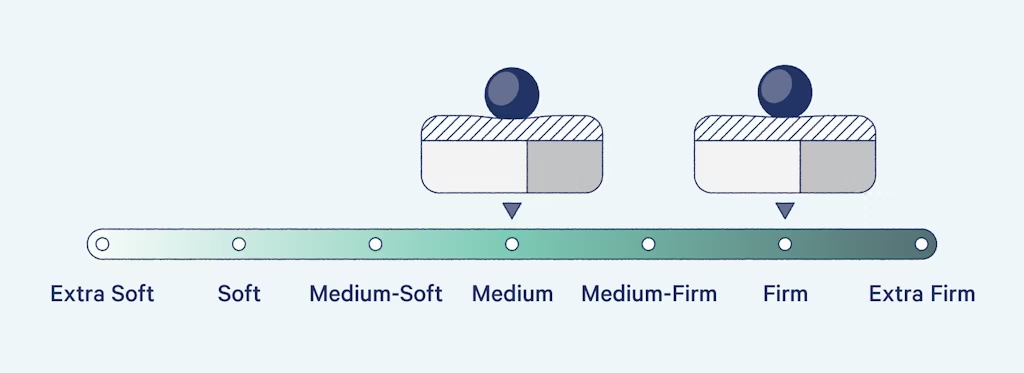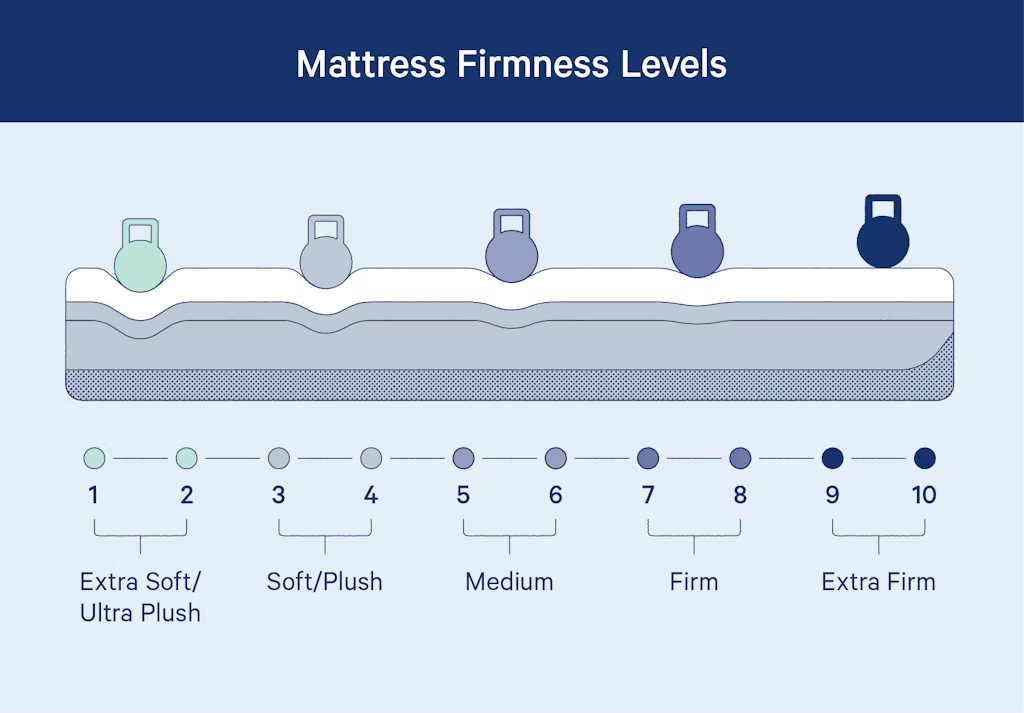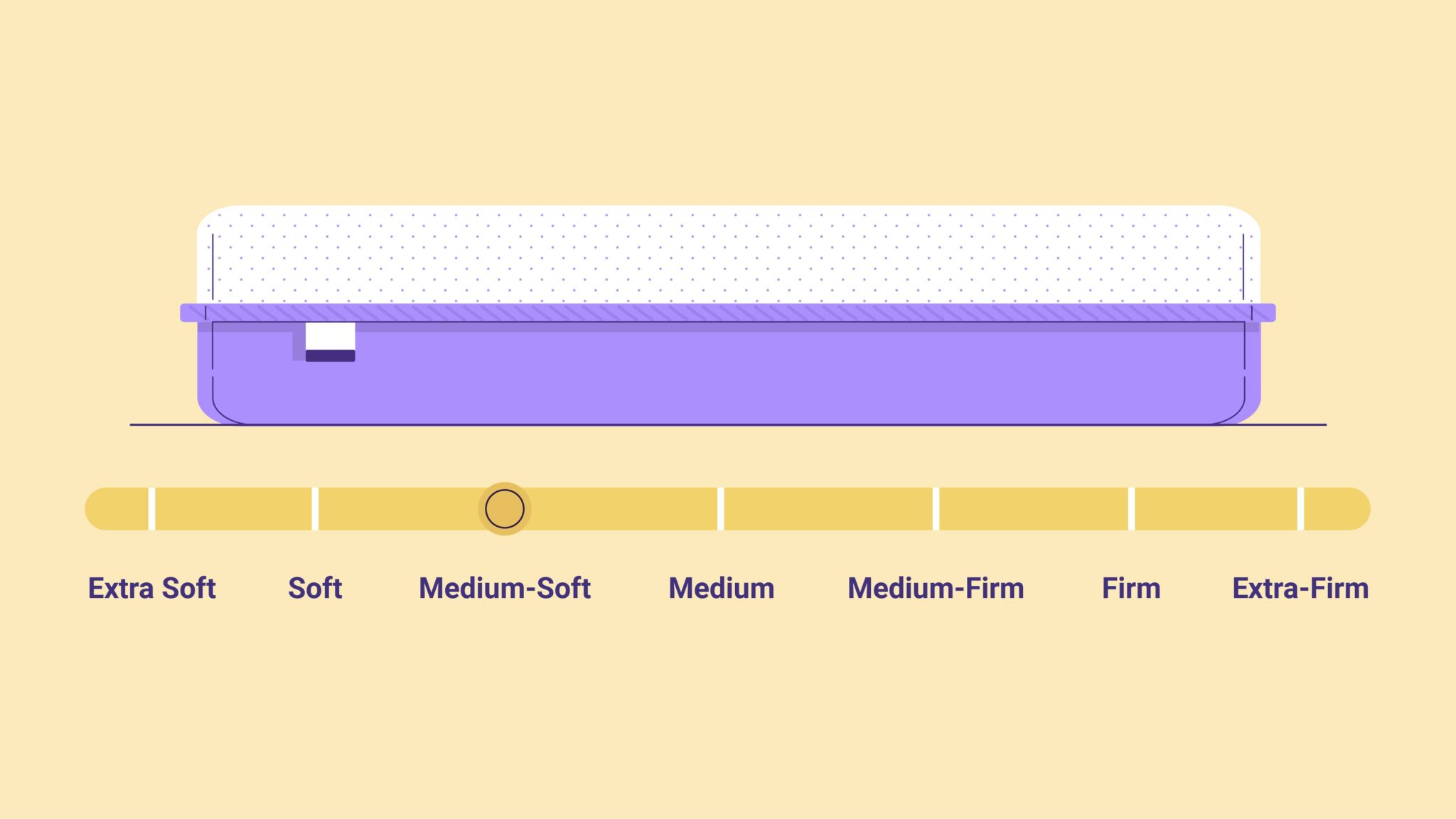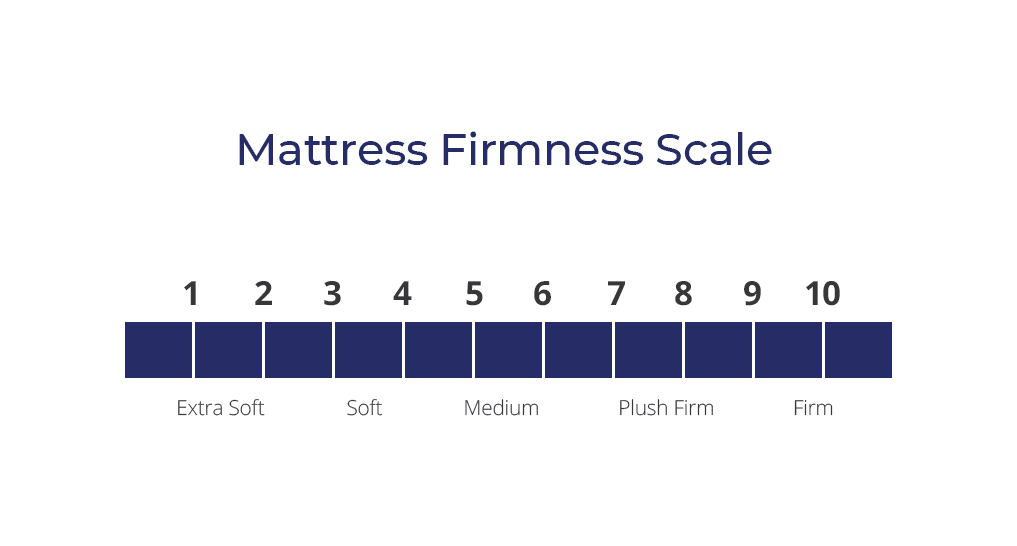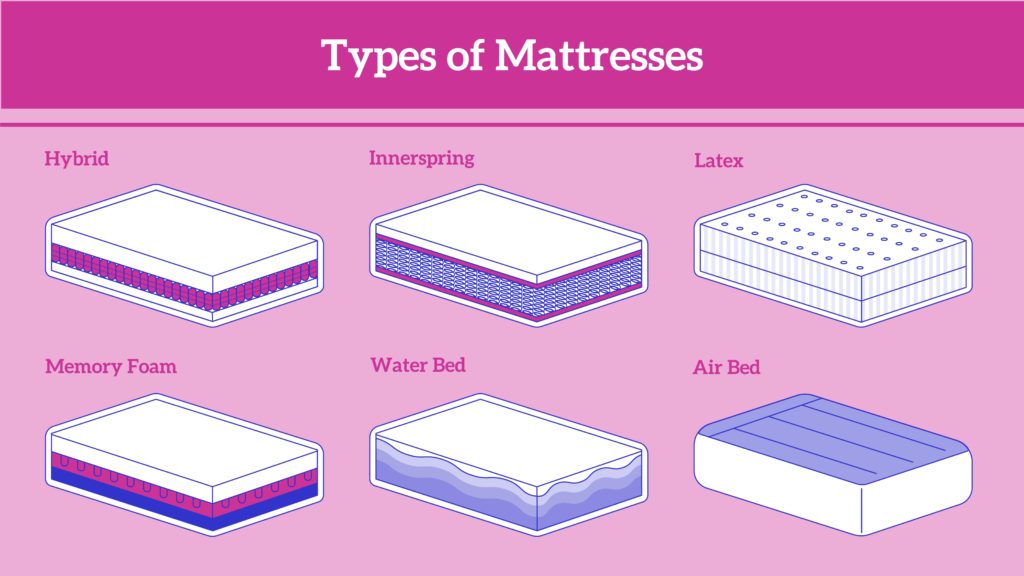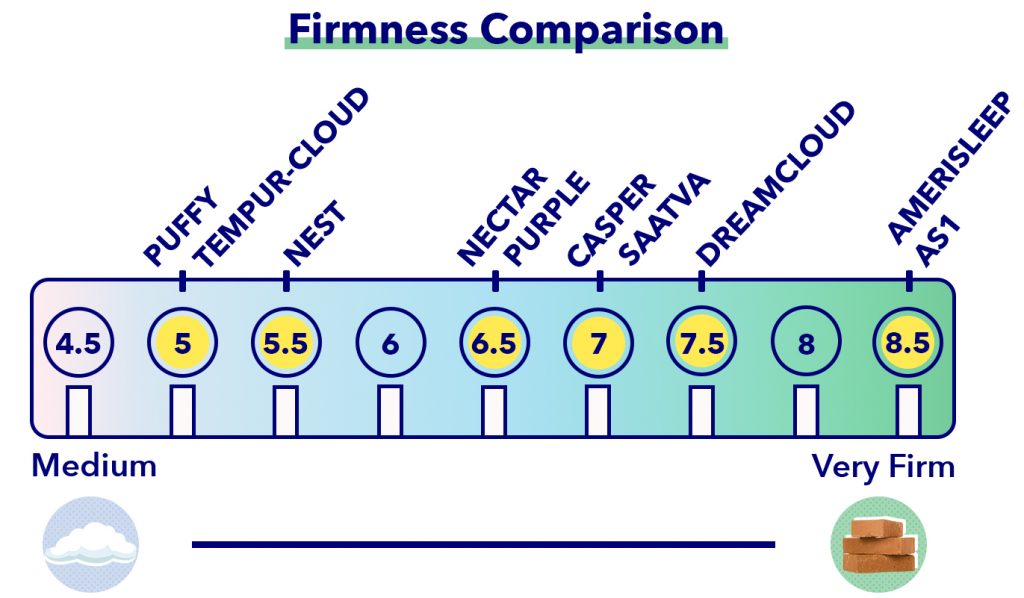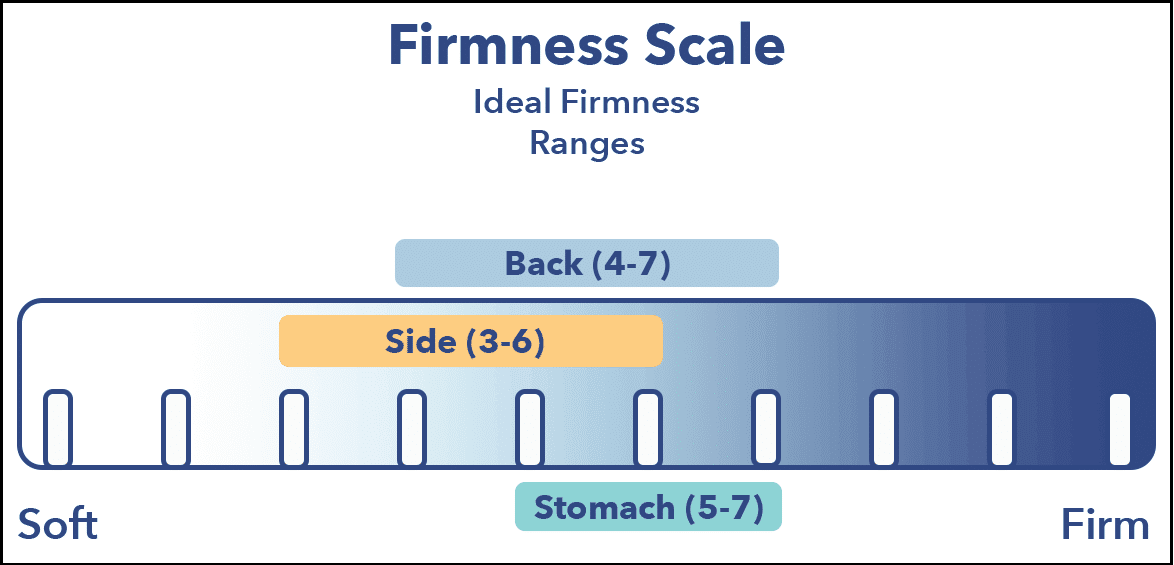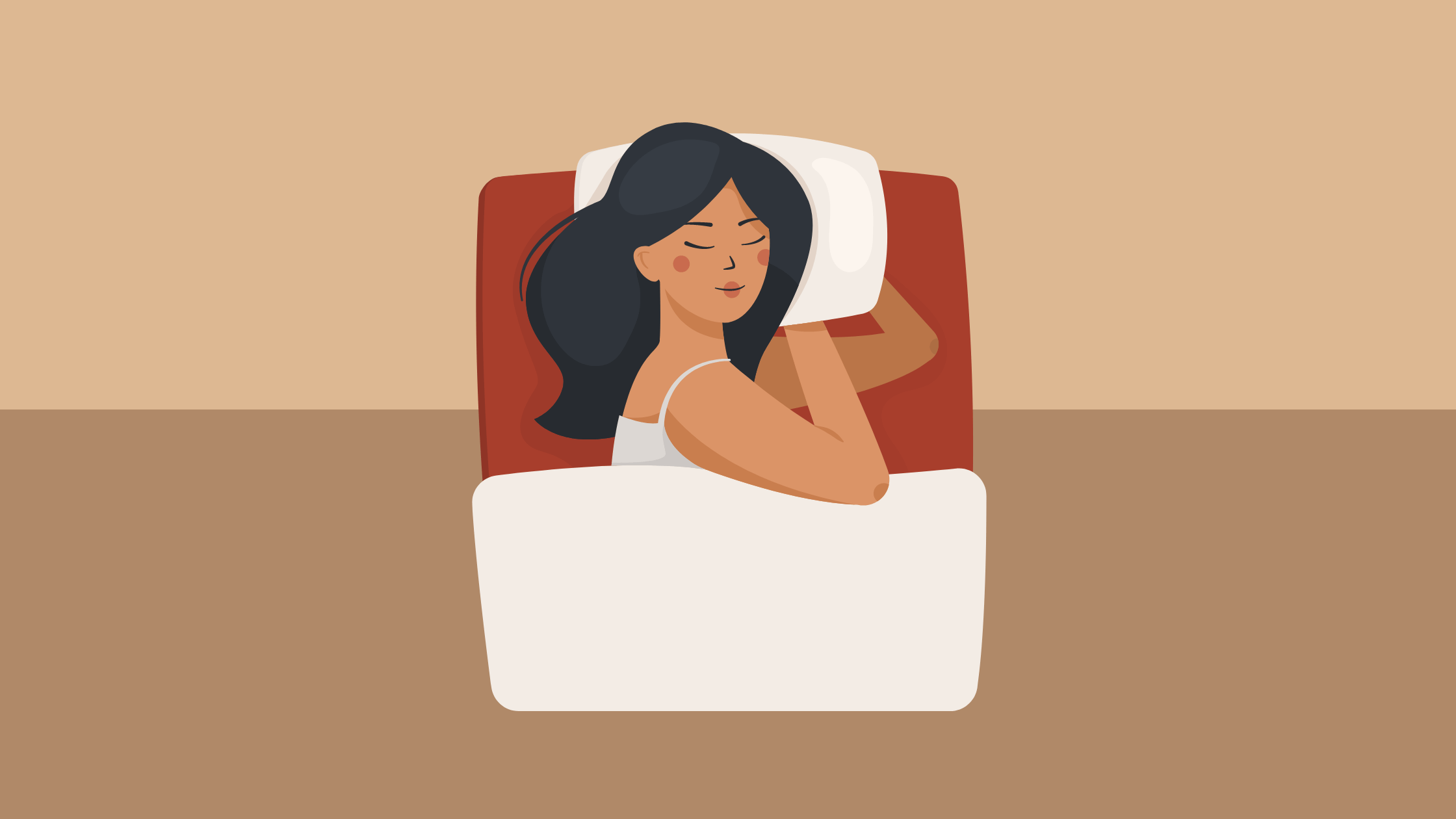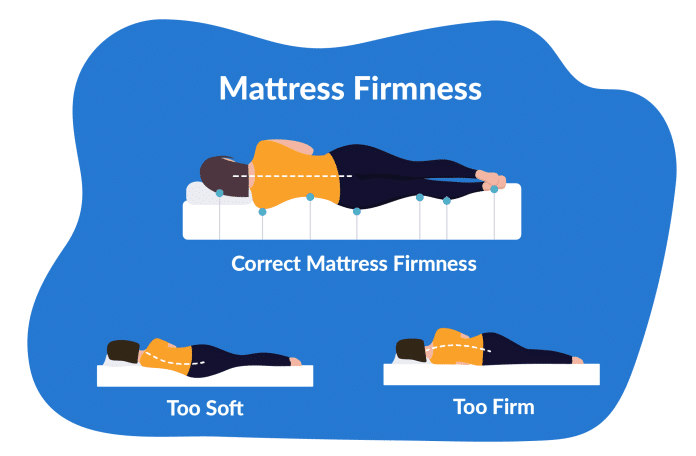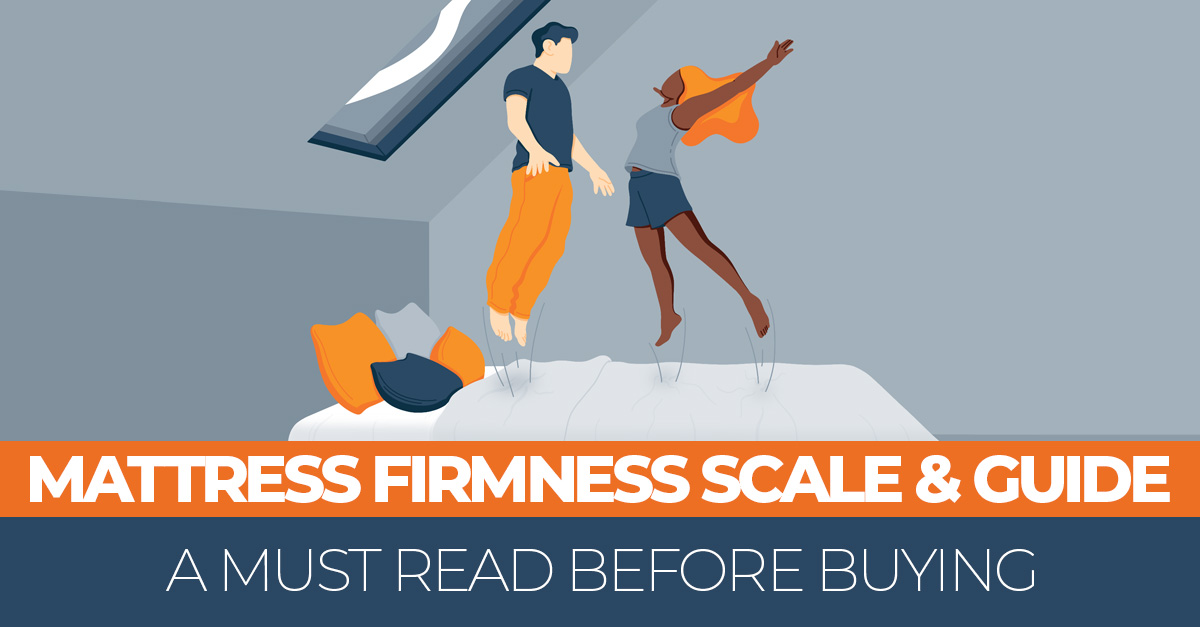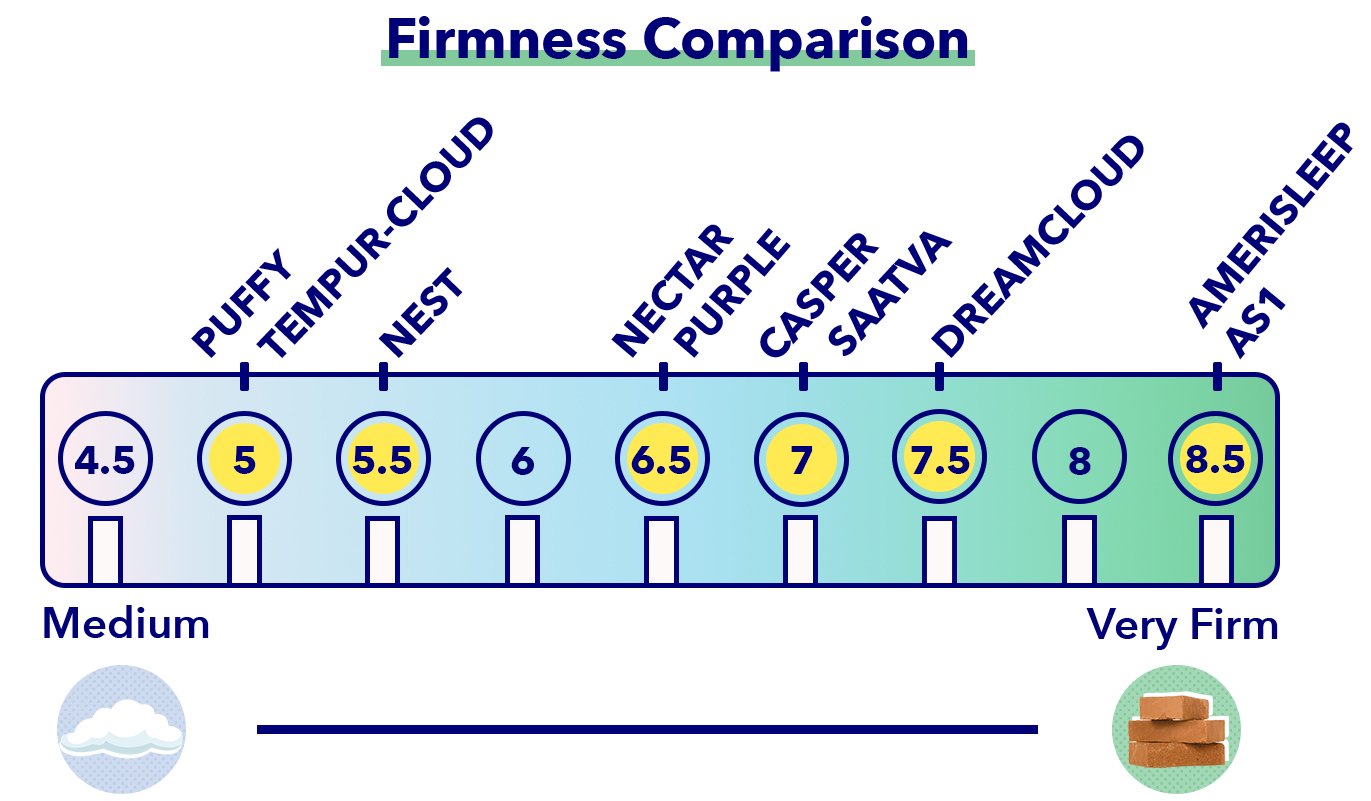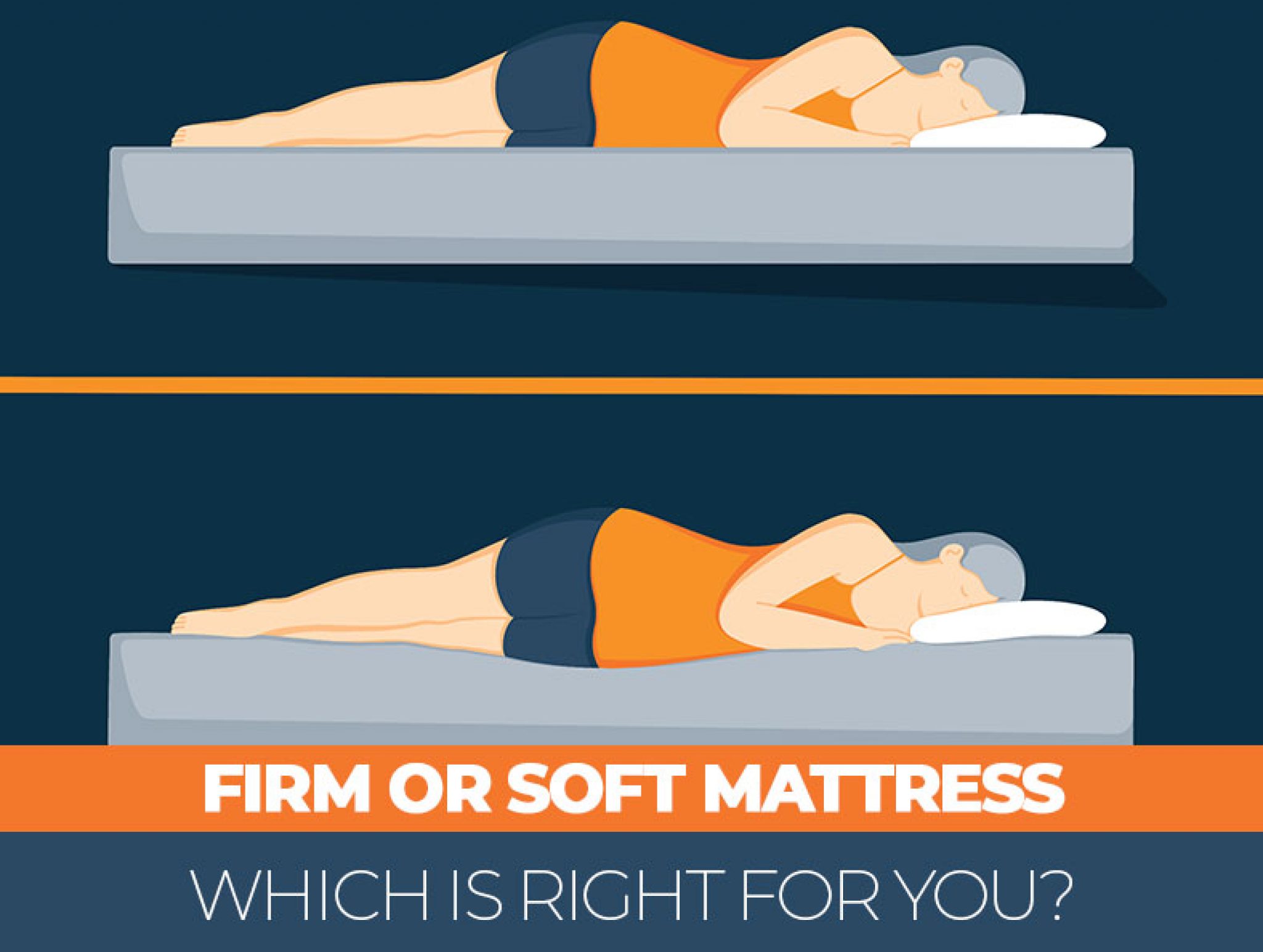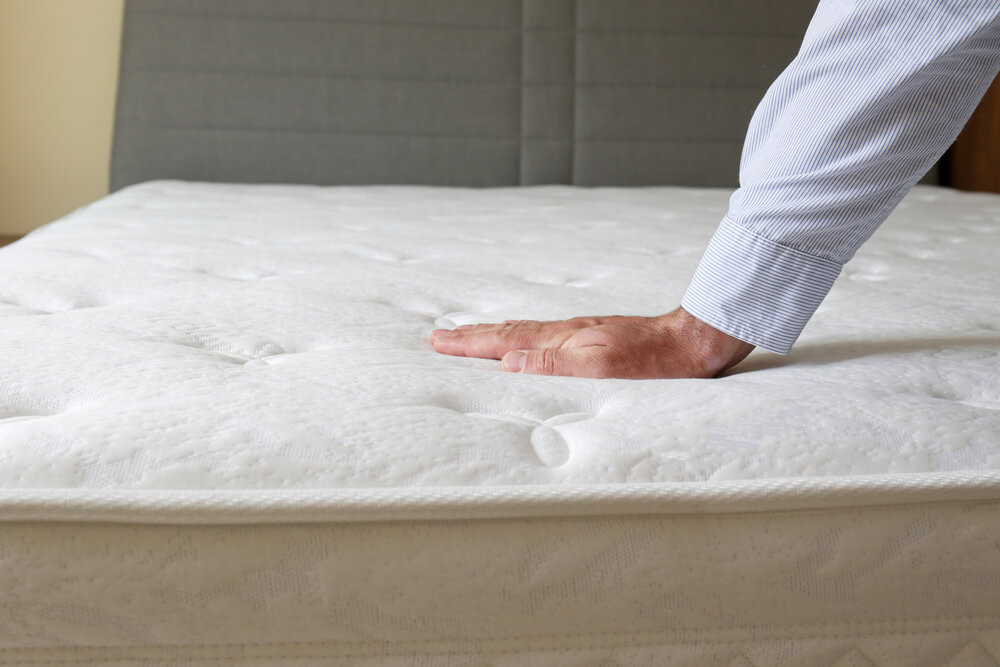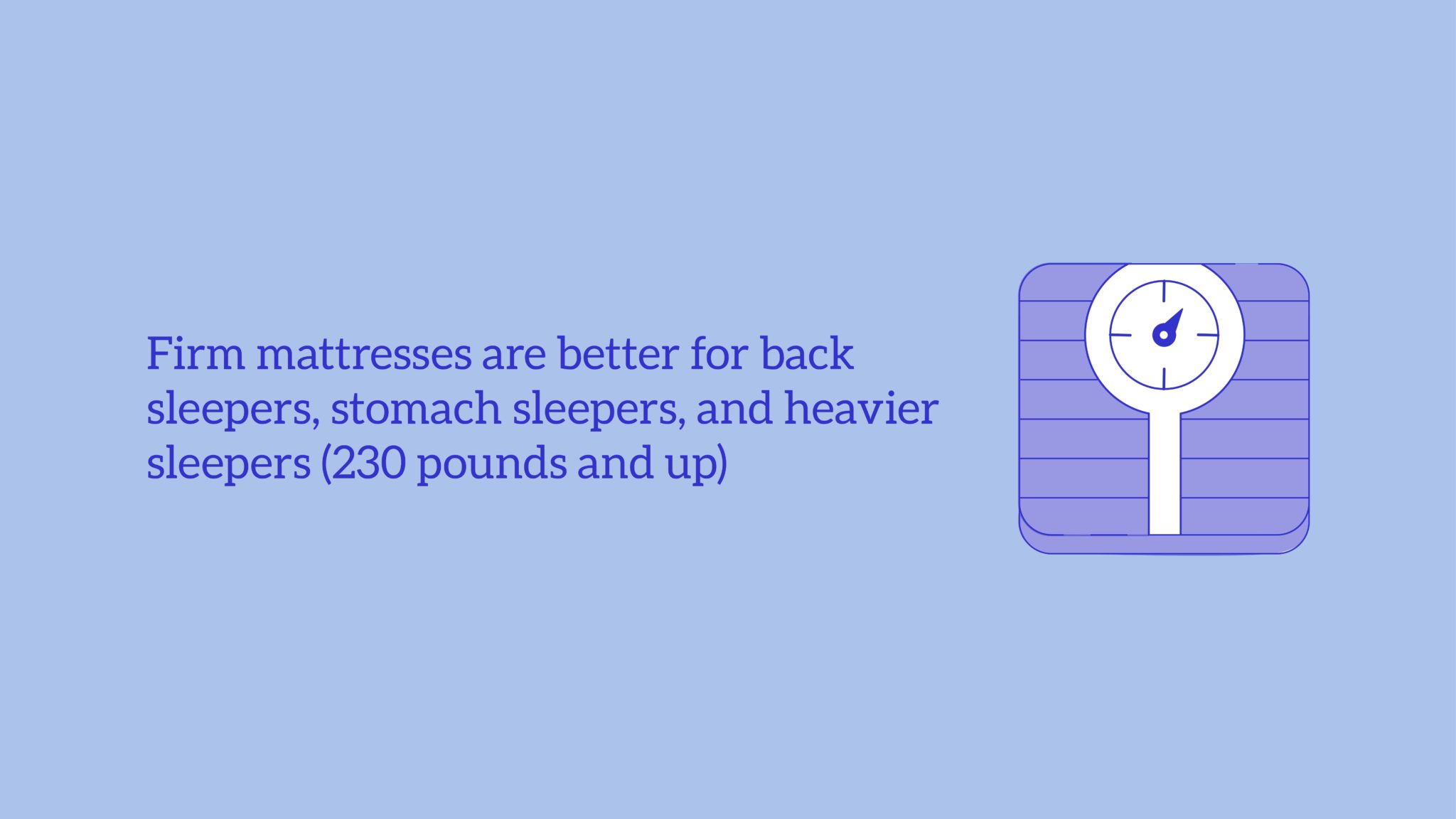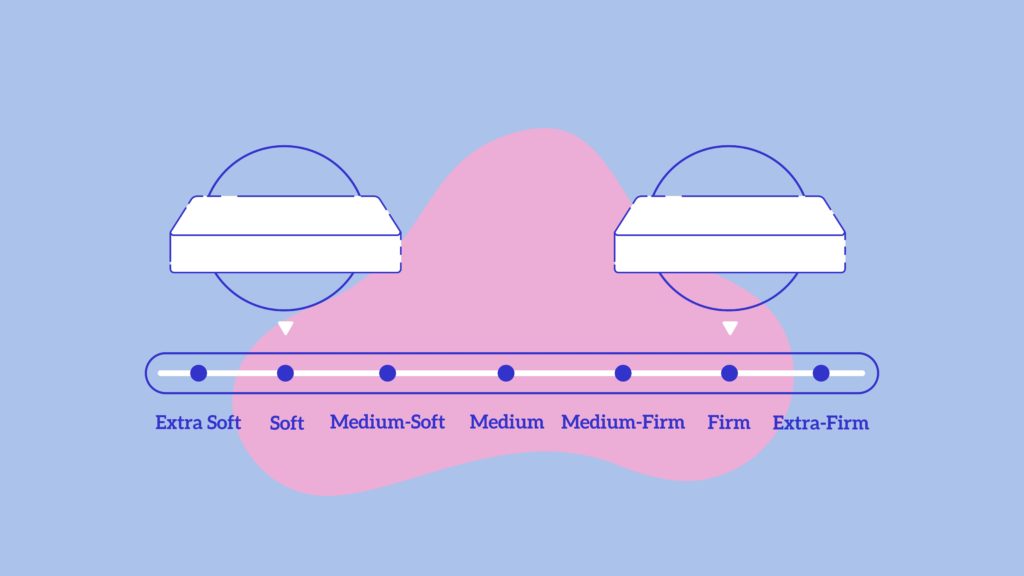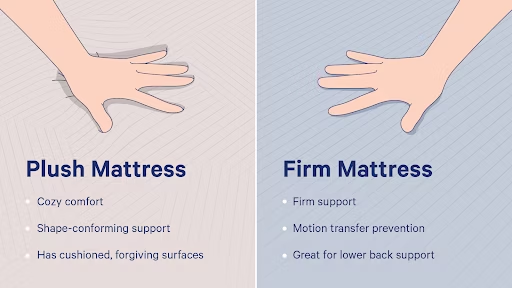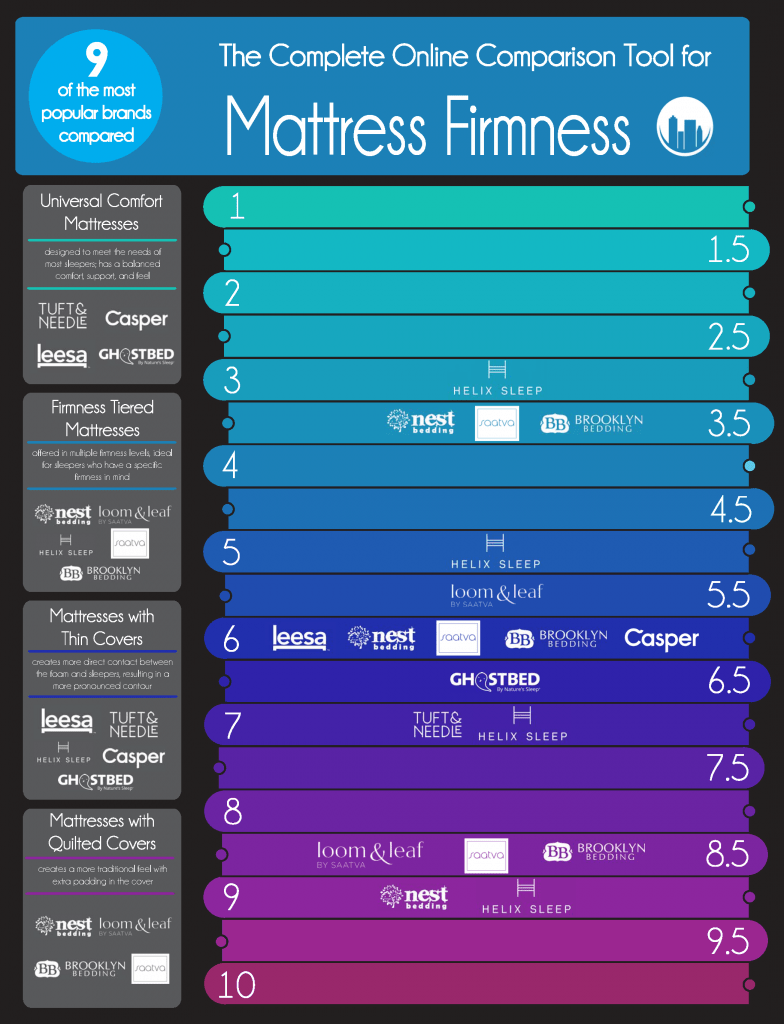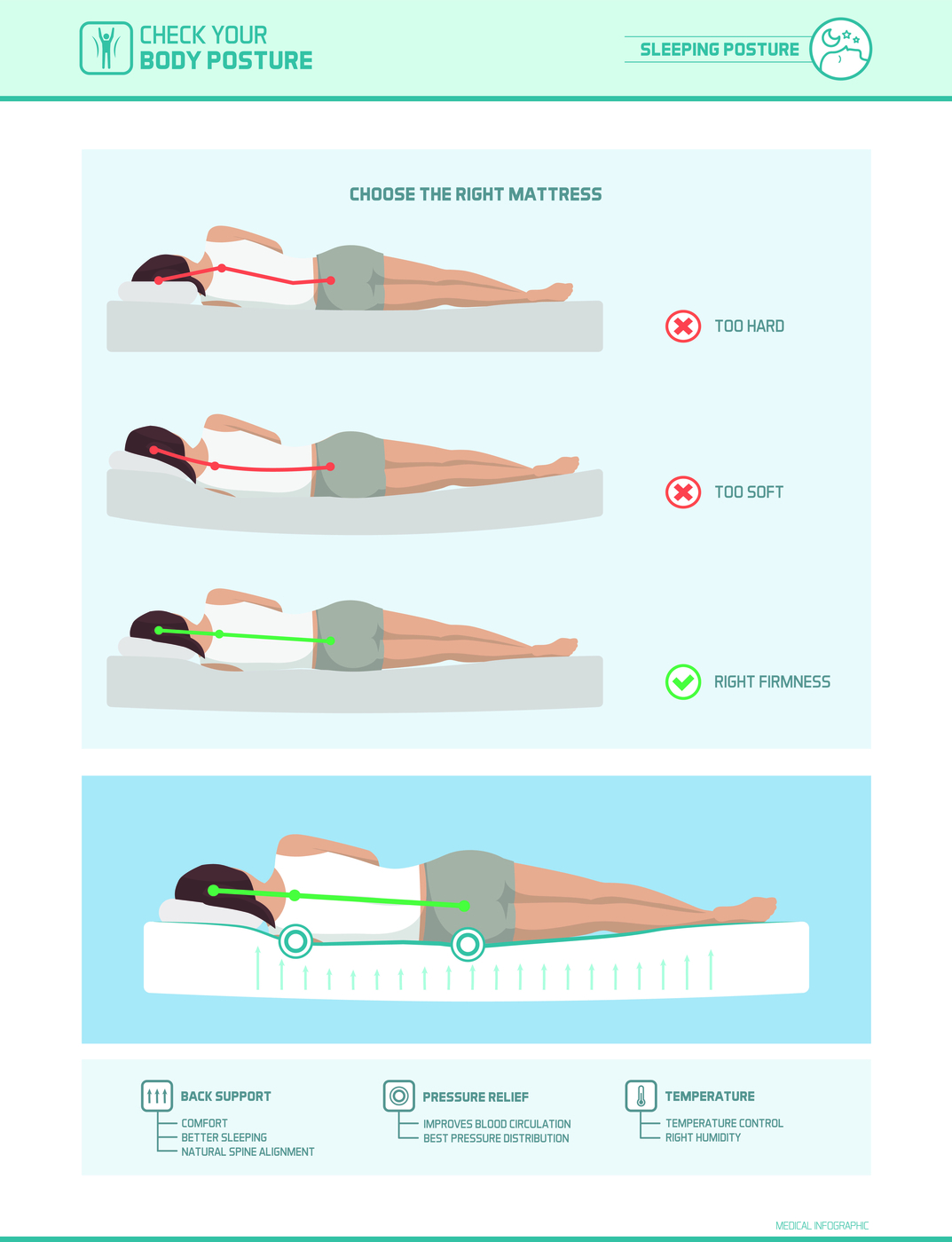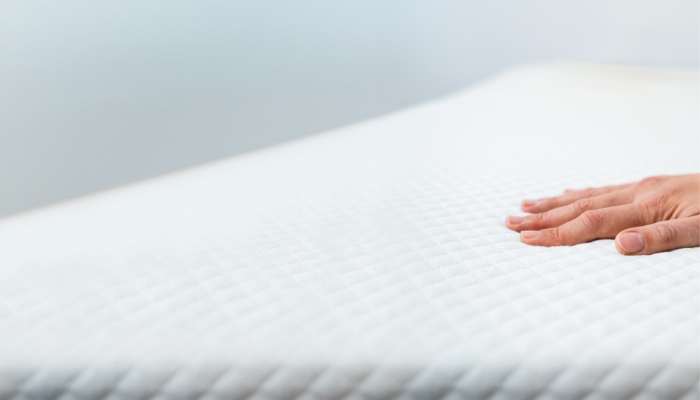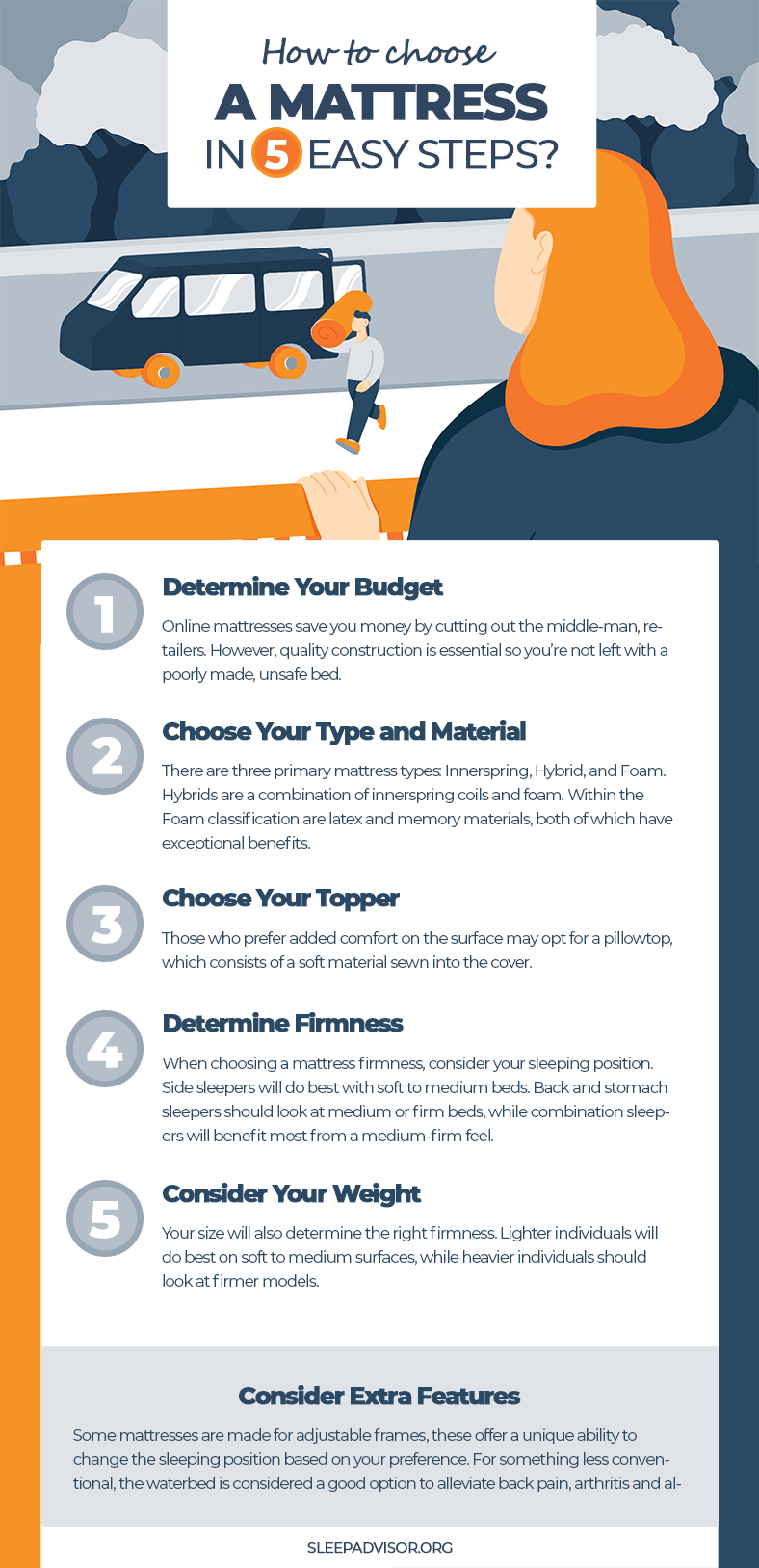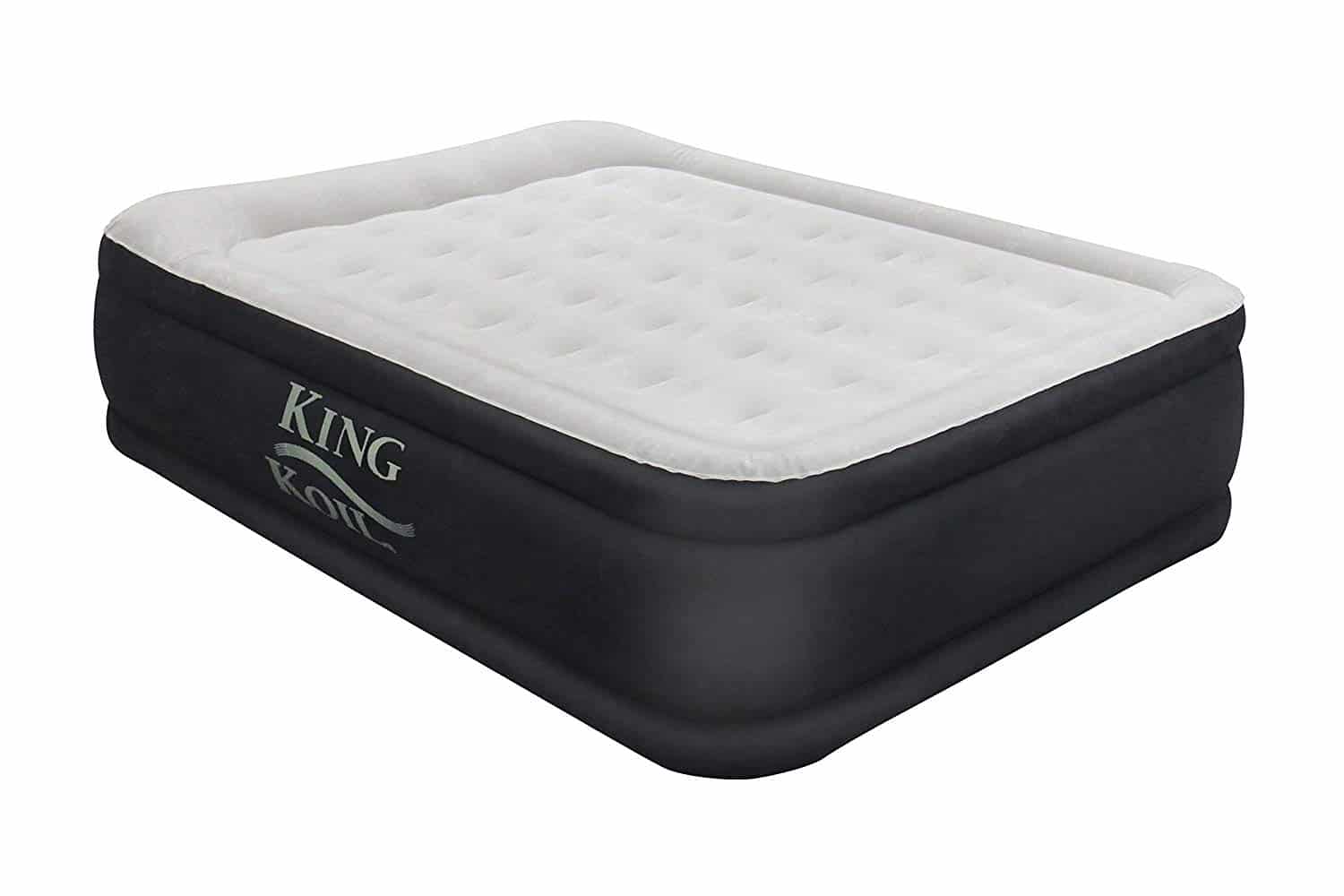When it comes to choosing a new mattress, one of the main factors to consider is firmness. But what exactly does "firmness" mean in the world of mattresses? And how do you know which level of firmness is right for you? In this guide, we'll break down the top 10 differences between mattress firmness levels to help you make the best decision for your sleep needs. Mattress Firmness Explained: What's the Difference?
Before we dive into the differences between mattress firmness levels, let's first define what "firmness" actually means. Simply put, firmness refers to the level of support and comfort a mattress provides. Most mattresses are rated on a scale from 1 to 10, with 1 being the softest and 10 being the firmest. Keep in mind that firmness is subjective and can vary based on personal preferences and body type. Understanding Mattress Firmness: A Guide
Now that we understand what mattress firmness means, let's explore the key differences between soft, medium, and firm mattresses. Soft mattresses typically fall in the 1-3 range on the firmness scale and offer the most cushion and sinkage. Medium mattresses, ranging from 4-6 on the scale, provide a balance of comfort and support. Firm mattresses, with a rating of 7-10, offer the most support and less sinkage. The Key Differences Between Soft, Medium, and Firm Mattresses
Now that you know the basic differences between soft, medium, and firm mattresses, how do you determine which level of firmness is right for you? The best way to decide is by considering your preferred sleeping position, body weight, and any specific sleep needs or conditions you may have. How to Choose the Right Mattress Firmness for You
Each level of mattress firmness has its own pros and cons. Soft mattresses offer a plush and cozy feel but may not provide enough support for heavier individuals or those with back pain. Medium mattresses are a popular choice as they offer a good balance of comfort and support, but may not be firm enough for stomach sleepers. Firm mattresses provide the most support, but may be too hard for some and can cause pressure points for side sleepers. The Pros and Cons of Different Mattress Firmness Levels
Deciding between a firm or soft mattress ultimately comes down to personal preference. However, there are some general guidelines to consider. Soft mattresses are great for side and back sleepers, while firm mattresses are better for stomach sleepers. If you have back pain, a medium-firm mattress may be the best option. Firm vs Soft Mattresses: Which is Better for Your Sleep?
The mattress firmness scale ranges from 1 to 10, with 1 being the softest and 10 being the firmest. A rating of 1-3 is considered soft, 4-6 is medium, and 7-10 is firm. Keep in mind that this is a general guideline and the same number may feel different for different individuals. Mattress Firmness Scale: What Do the Numbers Mean?
When it comes to finding the perfect mattress firmness for your body type, there are a few things to consider. Heavier individuals may need a firmer mattress for proper support, while lighter individuals may prefer a softer feel. Additionally, those with back pain or other sleep conditions may benefit from a medium-firm mattress. Finding the Perfect Mattress Firmness for Your Body Type
The level of mattress firmness can greatly impact your sleep quality. A mattress that is too soft may cause you to sink in too much, leading to discomfort and aches. On the other hand, a mattress that is too firm may cause pressure points and disrupt your sleep. Finding the right level of firmness for your body can lead to better sleep and improved overall health. The Impact of Mattress Firmness on Sleep Quality
Many people with back pain assume that a firm mattress is the best choice, but this is not always the case. A medium-firm mattress may actually be more beneficial as it provides a balance of support and cushioning. It's important to find a mattress that supports your body and keeps your spine aligned, regardless of the firmness level. Mattress Firmness and Back Pain: What You Need to Know
The Importance of Choosing the Right Mattress Firmness
How Mattress Firmness Affects Your Sleep Quality
 When it comes to getting a good night's sleep, choosing the right mattress firmness is crucial. Many people mistakenly believe that a firmer mattress equals better support and a better night's sleep. However, the truth is that mattress firmness is a personal preference and can greatly affect the quality of your sleep.
Support and Comfort
The level of firmness in a mattress determines the amount of support and comfort it provides. A firmer mattress may be beneficial for those who suffer from back pain, as it can provide better spinal alignment. On the other hand, a softer mattress may be more comfortable for those who prefer a plush, sinking feeling when they sleep.
Body Weight and Sleeping Position
Your body weight and preferred sleeping position are also important factors when choosing mattress firmness. A heavier person may need a firmer mattress for proper support, while a lighter person may find a softer mattress more comfortable. Similarly, a side sleeper may prefer a softer mattress for better pressure relief, while a back or stomach sleeper may prefer a firmer mattress for proper spinal alignment.
Temperature Regulation
Believe it or not, the firmness of your mattress can also affect your body temperature while you sleep. A firm mattress can be more breathable and allow for better air circulation, which can help keep you cool and prevent night sweats. On the other hand, a softer mattress may trap heat and cause you to feel hot and uncomfortable.
How to Choose the Right Mattress Firmness
The best way to determine the right mattress firmness for you is to try out different options. Most mattress companies offer a trial period where you can test out the mattress and return it if it doesn't meet your needs. It's also important to consider your personal preferences and any specific health concerns when choosing the firmness of your mattress.
In conclusion, the difference in mattress firmness can greatly affect your sleep quality. It's important to consider factors such as support, comfort, body weight, sleeping position, and temperature regulation when choosing the right firmness for your mattress. Don't be afraid to test out different options and prioritize your own personal comfort for a good night's sleep.
When it comes to getting a good night's sleep, choosing the right mattress firmness is crucial. Many people mistakenly believe that a firmer mattress equals better support and a better night's sleep. However, the truth is that mattress firmness is a personal preference and can greatly affect the quality of your sleep.
Support and Comfort
The level of firmness in a mattress determines the amount of support and comfort it provides. A firmer mattress may be beneficial for those who suffer from back pain, as it can provide better spinal alignment. On the other hand, a softer mattress may be more comfortable for those who prefer a plush, sinking feeling when they sleep.
Body Weight and Sleeping Position
Your body weight and preferred sleeping position are also important factors when choosing mattress firmness. A heavier person may need a firmer mattress for proper support, while a lighter person may find a softer mattress more comfortable. Similarly, a side sleeper may prefer a softer mattress for better pressure relief, while a back or stomach sleeper may prefer a firmer mattress for proper spinal alignment.
Temperature Regulation
Believe it or not, the firmness of your mattress can also affect your body temperature while you sleep. A firm mattress can be more breathable and allow for better air circulation, which can help keep you cool and prevent night sweats. On the other hand, a softer mattress may trap heat and cause you to feel hot and uncomfortable.
How to Choose the Right Mattress Firmness
The best way to determine the right mattress firmness for you is to try out different options. Most mattress companies offer a trial period where you can test out the mattress and return it if it doesn't meet your needs. It's also important to consider your personal preferences and any specific health concerns when choosing the firmness of your mattress.
In conclusion, the difference in mattress firmness can greatly affect your sleep quality. It's important to consider factors such as support, comfort, body weight, sleeping position, and temperature regulation when choosing the right firmness for your mattress. Don't be afraid to test out different options and prioritize your own personal comfort for a good night's sleep.




